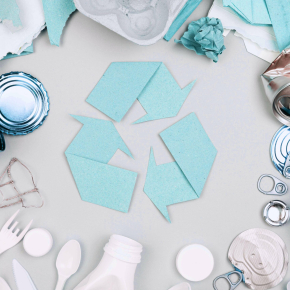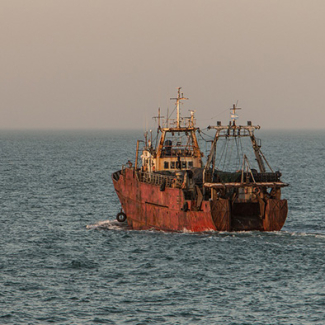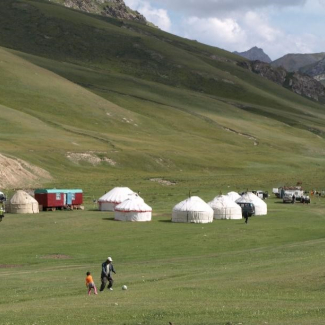
France 2030: an all-new programme to accelerate the recycling and reuse of materials
|
|
The recyclability and re-use of materials are prerequisites for the transition to a competitive, environmentally friendly circular economy. In order to meet these challenges, a new PEPR (priority research programme) called “Recycling, recyclability and re-use of materials” has been launched as part of the National Acceleration Strategy concerning “Recyclability, recycling and reincorporation of recycled materials”. Initiated by CNRS and allotted a budget by the France 2030 investment plan of €40 million over six years, it focuses on five commonly used everyday materials: plastics, composite materials, textiles, strategic metals, and paper and cardboard. Certain sectors, such as batteries, new energy technologies, electrical and electronic wastes and household wastes are also priority targets. The programme has adopted an original approach, calling upon a wide range of scientific disciplines, including the humanities and social sciences.
This unprecedented programme aims to meet two main objectives. The first is to work on scientific issues that have been identified as obstacles for the development of disruptive innovations and, more broadly, for the development of recycling channels along with solutions for the reuse of recycled materials in new products. It also seeks to structure the scientific community to address issues related to the recycling and recyclability of materials in order to meet the challenges of sustainable development.
The PEPR “Recycling, recyclability and re-use of materials” adopts an original and systemic approach, at once pluri- and interdisciplinary. It encompasses virtually all economic sectors and involves an unprecedented mobilisation of resources in terms of scientific disciplines, primarily concerning physics, engineering, the sciences of matter, the earth and life sciences, and the socio-economic and political sciences, as well as the data sciences. The programme will also investigate problems related to economics, regulations, standardisation, regional questions, etc.
Ten targeted research projects
Of the ten research projects initiated as part of the programme, five specialise in specific types of materials: plastics, strategic metals, composite materials, textiles, and paper and cardboard.
- The project “Recycling, recyclability and reuse of plastics” will focus in particular on studying the behaviour of contaminants contained in plastics, the disassembly and breakdown chain for complex (e.g. multilayer) structures, and solutions for the chemical recycling of plastics.
- The project “Innovative strategies and processes for the recycling of strategic metals towards a more circular economy” will conduct a socio-economic and environmental assessment of the recycling of strategic metals, develop an automated in-line sorting method, and examine dissolution and recovery operations for strategic metals, in addition to modelling the processes involved and developing tools to optimise them.
- The project “New generation of recyclable composites from recycled raw materials: towards a circular economy” will focus on the separation of the components of composite materials derived from the wind power, electronics and automotive sectors, as well as those found in composite material deposits both present and future. It will also study the development of new composites based on recycled materials, taking their end of life into account.
- The project specialising in paper and cardboard will deploy new sustainable processes for improving the properties of recycled fibres, investigate possibilities for the reuse of solid and liquid wastes from conventional recycling process, and develop new processes for recycling and reusing all of the elements separated from composite materials. It will also conduct an environmental and societal analysis of the targeted processes.
- The project “Textile valorisation: recycling, recyclability and reuse” will examine strategies for textile recycling and the development of polymers for spinning that can contribute to the establishment of a circular economy in this sector. It will study sustainable textile processing techniques as well as the design of textile objects, based on a recycling approach that integrates a “life cycle analysis” of all resources and a sociological analysis of the end of life of textiles.
Five other projects are devoted to complex waste deposits made up of different types of materials, which require the coordination of expertise from very different scientific disciplines. The areas of investigation covered by these transversal research projects are: batteries, new energy technologies, electrical and electronic wastes, household wastes (not including compost) and the society of recycling and reuse.
- The project “Innovative, sustainable, economical and flexible recycling process for used lithium-ion batteries” will study the graphite market and value chain for batteries as well as the future role of recycled graphite. In particular, it will analyse the processes for recycling used battery materials and develop a system for assessing the sustainability of the raw materials used in batteries.
- The “New energy technologies” project aims to characterise the recycling of equipment developed for these new technologies, such as photovoltaic panels (solar), magnets and rotors (wind) and fuel cells (hydrogen), all with the shared objective of developing solutions for recovering the valuable materials in each component, taking into account the efficiency of the procedures and the environmental impact of the processes involved.
- The project “For a viable French value chain in the recycling of waste electrical and electronic equipment (WEEE)” will analyse urban deposits of this type of waste as well as related sampling methodologies and treatment processes. It will also study the implications of WEEE recycling strategies in relation to resource accessibility and environmental impact.
- The project “Household wastes – systemic analysis” will study, first of all, innovative sorting methods for the optimal separation of materials, followed by the development of an innovative approach to waste preparation for the reuse of materials.
- Lastly, a targeted project will mobilise researchers in all of the humanities and social sciences. Entitled “Society of recycling and reuse”, it will focus on the political and regional ecology of recycling, consumer behaviour regarding new regulations for public and private partners, regulatory mechanisms along with the related business models, and recycling practices.
Although these initial projects are not able to study all of the problems
involved, nor to integrate all of the research teams that could contribute valuable expertise for reaching the objectives, in the course of the programme other projects will be defined for addressing, as effectively as possible, the related technological, industrial and societal issues. Under the impetus of this ambitious programme, the structuring of the scientific community will make it possible to establish a collective effort. The mobilisation of the community in question will take place in particular through the introduction of special training initiatives in cooperation with institutions of higher education.
The French government is devoting €3 billion from the France 2030 investment plan for research, through ambitious programmes (the PEPRs) initiated by the country’s research organisations in order to consolidate French leadership in key areas, related or likely to be related to a technological, economic, societal, health and environmental transformation, and considered priorities on a nationwide and Europe-wide scale. These actions demonstrate the effectiveness of France 2030 in ensuring a continuum of funding both upstream and downstream.
The inaugural day of the programme also marked the launch of the pre-maturation / maturation action Circle, a consortium formed as a result of the France 2030 pre-maturation / maturation call for proposals. Circle, which focuses on the “Recyclability, recycling and reincorporation of recycled materials” programme, is coordinated by CNRS, via CNRS Innovation, and the technology transfer company Satt Pulsalys (Société d’acceleration du transfert de technologies Lyon et Saint Etienne).


